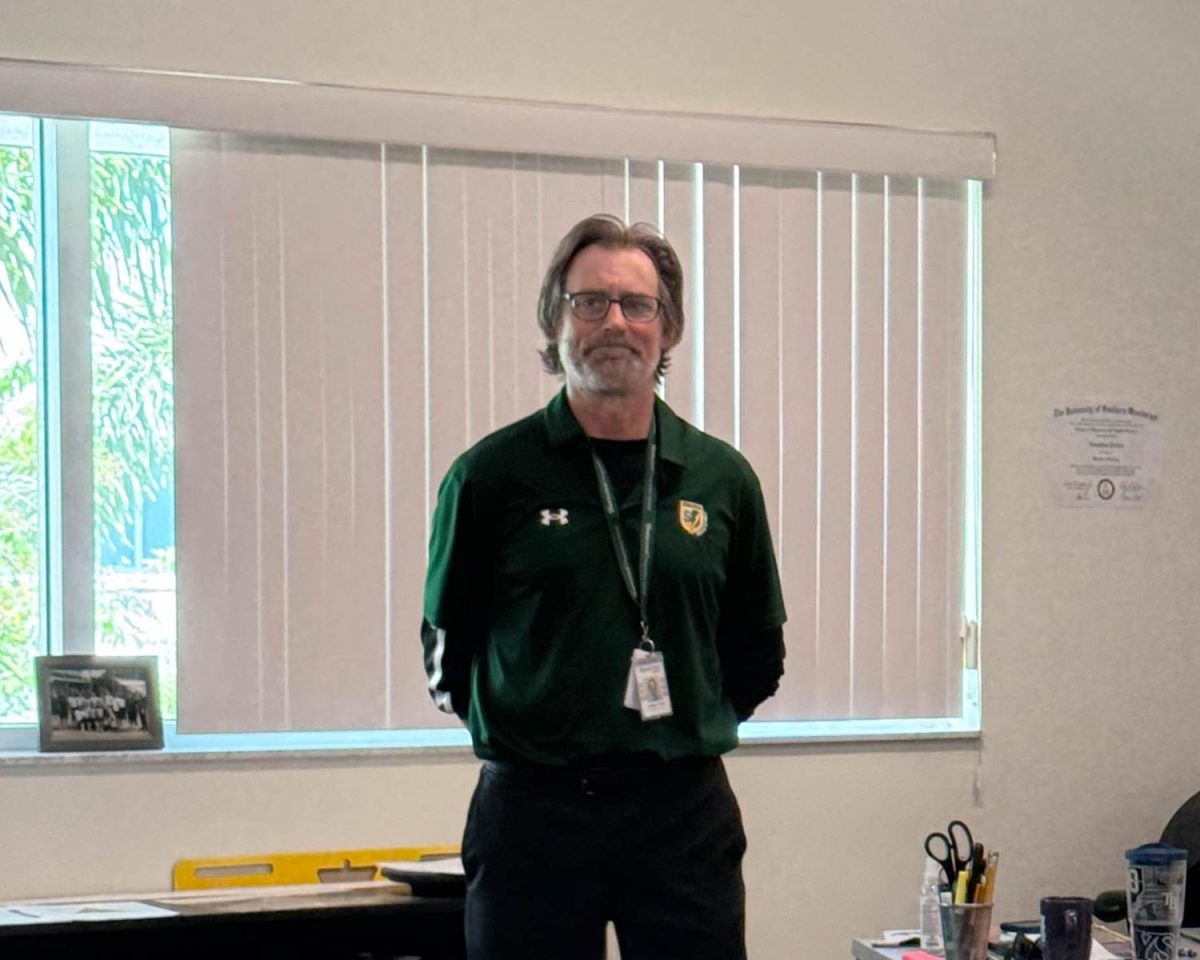
Ava Rae Gurievsky
US Health Teacher and Coach Jonathan Tallon standing in his new classroom. Although holding a new position, he is not new to the Shorecrest community as he was a coach for the Middle School girls basketball team in years prior.
Forget push-ups and sprints. The Upper School freshman health class is no longer just about breaking a sweat.
For years, ninth graders at Shorecrest began high school with a course that looked and felt like an extension of PE. This year, the long-standing Health and Fitness class has been rebranded as Health and Well-Being, redesigned to place less emphasis on workouts and more on classroom learning.
The change is bigger than a new name. The course, previously taught by a member of the Athletic Department, is now taught by US Health Teacher and Coach Jonathan Tallon. Fitness now makes up a much smaller share of the class content.
“Historically, this class has been mostly gym and working out, maybe 75 percent of the time, with the rest in the classroom,” Tallon said. “That’s sort of flipped the other way around. The first piece of this course is really about just understanding health, wellness and yourself.”
Guest instructors have also been added to the curriculum. US Counselor Brian Wiley recently led sessions on mental health, and US Learning Specialist Jennifer Hart held classes focused on executive fucntioning. US Head Dean and 12th Grade Dean Stacy Alexander will teach healthy relationships later this year. Assistant Head of Upper School and US Academic Dean Anne Michelle Frey plans to teach about financial literacy.
“The goal is to not only bring in experts to share their knowledge, but also to give the ninth graders the opportunity to meet many of the adults on campus,” Frey said.
For students who took the old version of health, the difference is clear.
“What I remember most was going in the weight room and doing your own workout,” sophomore Khali Cameron said. “You got to design them for yourself, which was really beneficial. It showed you how you can make your own goals and work toward them. I’ve heard they don’t go in there as much.”
While physical activity is still part of the course, it no longer dominates. Some weeks may still be devoted entirely to fitness, but more often, freshmen will spend class time exploring how choices about food, sleep and stress management affect both the body and mind.
For Tallon, the goal is to help students see the bigger picture.
“Even if it’s just realizing, ‘maybe I should have this kind of thing for lunch,’ or picking up a mental health skill, the point is to expand understanding,” he said. “We’re trying to build foundational habits so students aren’t just focusing on fitness, but also on being genuine, good people, which just lines up with Shorecrest’s values.”